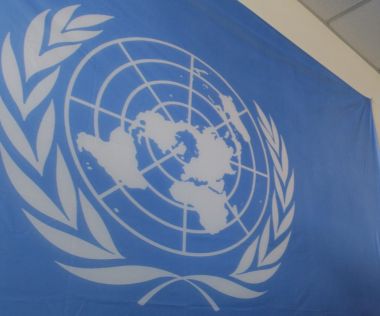Ambitious but limited: The Sustainable Development Goals lack a Christian perspective
With much pomp and ceremony the UN's Sustainable Development Goals (SDGs) will be adopted by world leaders this week, including Pope Francis.
Acting as a successor to the Millennium Development Goals (MDGs), the SDGs are a list of targets for steering money and government policy towards improving the lives of the poor around the world. They are ambitious, well-intentioned and demonstrate an impressive attempt at collaboration between aid agencies and governments.

Indeed there is much to be admired in the 17 goals and 169 associated targets. Goal 1: "end poverty in all its forms, everywhere" isn't a bad place to start. Neither is the aim to "ensure inclusive and equitable quality education and provide lifelong learning opportunities for all." And the desire to "ensure healthy lives and promote well-being for all at all ages" is sure to receive praise for its audacity, if nothing else.
But there is one major problem with the SDGs: they have a narrow, secular understanding of what wellbeing actually is. They lack a Christian perspective and are worse off for it.
Christian and other religious perspectives understand that a human being is more than the sum of their parts. We know that a sense of purpose and fulfilment in life needs more than a good education. We know that peace and contentment with life comes from more than being free of illness. And we know that hope is deeper than having enough food on the table.
Not for a moment are any of those things irrelevant. On the contrary the UN should be praised for its bravery in setting out this list of goals. But they demonstrate a limited understanding of human flourishing.
A quick search of entire Agenda 2030 document reveals that there is no mention of compassion, love, sacrifice, generosity, selflessness or faith.
The SDGs do a great job of articulating humans' material needs and laying out plans to meet those needs. But they make the mistake of thinking human flourishing comes from the fulfilment of those needs alone. They forget that humans are more than material inputs.
Perhaps this is unsurprising. The UN has secular origins and maintains a vigorously secular ethos treating religion with suspicion. But this must not deter Christian based charities.
Many commentators have criticised the SDGs for being too long and extensive. They say they try to do too much. On the contrary, I would say they don't go far enough. The transformation of society comes from more than just good health, education and food.
So Christians must not ignore the SDGs or treat them with the same suspicion that the UN treats its so-called FBOs (faith-based organisations). Rather we must accept the challenge the SDGs offer and go beyond it. We are called to bring good news to the poor, to bind up the broken hearted, to proclaim freedom for the captive and the SDGs provide an excellent starting point. But they can't be the end point.
Satisfaction, contentment and peace in the human heart comes from much more than having our material needs met. Paul learnt to be content with whatever he had because it was deeper than just the food on the table. So when we bring aid to developing countries let's not stop at thinking providing food, education and health is enough. It is a brilliant start but human beings are worth more than that.











